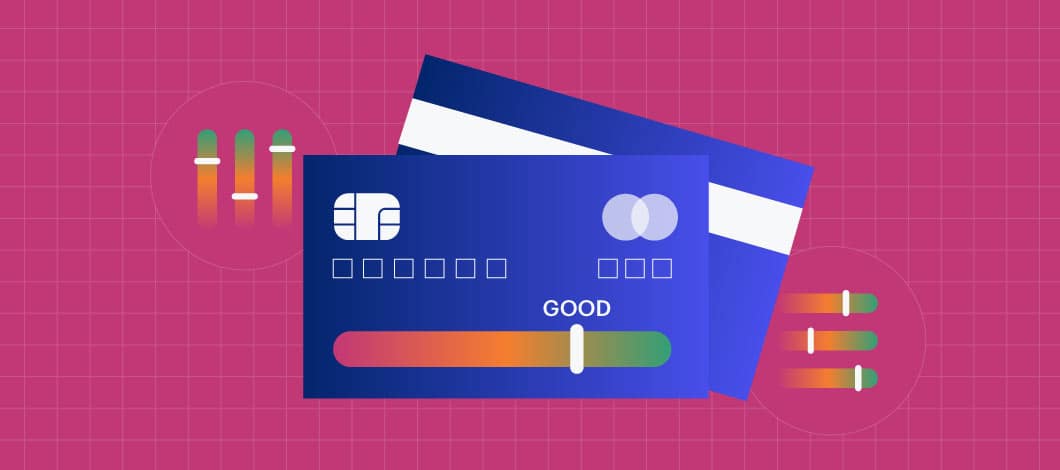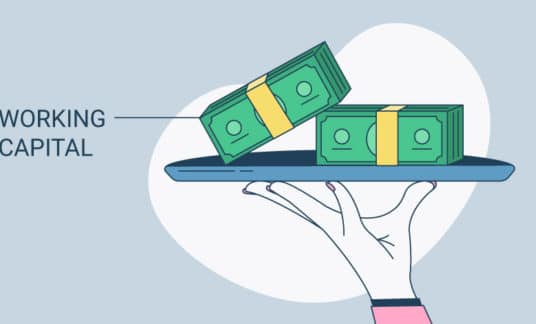It’s safe to say the value of having a higher credit score to your name isn’t going anywhere anytime soon. With the global pandemic placing social distancing requirements on businesses across industries, business owners are more dependent now than ever on showcasing themselves virtually.
In an unstable economy, access to business credit couldn’t be more life-saving for businesses.
You and your business have separate credit scores. But pandemic or not, your personal credit score can make a big difference when it comes to financing your business. Taking steps to improve it might be your next business strategy.
Your Credit Score: Why It Matters for Your Business
It’s easy to overlook the benefits of having a favorable credit score when you’re a business owner. There aren’t direct penalties for low scores.
However, if you apply for a business loan or seek to bring investors onboard, its importance comes into clear focus. Whether your credit score is affecting your business, a higher score could make a huge difference in it for several reasons.
It’s an Emergency Safety Net
When you started your business, chances are you went all in. It probably demanded the majority of your time, and possibly a great deal of your savings.
But with all that time and money investment going in, what safety net do you have securing your business?
Being able to get a loan in the event of a financial emergency could save your business from completely going under. That’s a major reason it’s important to have a good credit score when you own a small business.
It Helps Represent Your Business to Investors
COVID-19 has taken away a lot of trade shows and in-person networking events for business owners today. That said, the appearance of an investment-worthy online portfolio is make or break when it comes to fundraising.
It May Result in Faster Growth
Your personal credit report is typically reviewed when you’re applying for a business loan. Good credit could increase your likelihood for approval or help lower your interest rates.
Financing your growth with a business loan is a common practice for small businesses, particularly in early phases of growth when customers are minimal.
Borrowing with the intention to grow your profit helps ensure you pay back the loan. Plus, it enables you to kick-start the flow of customers with investments in marketing and advertising.
It Can Mean Lower APRs
Higher credit scores don’t just correspond to a higher eligibility for business loans, but also lower annual percentage rates (APRs) for paying them off.
This enables your company to save money it would otherwise be giving away, and can go a long way in protecting your business’s financial future.
It Offsets a Limited Credit History
When your business is in its earlier stages looking for funding, you may have no business credit history to speak of that could translate to a high business credit score.
That’s where having a high personal credit score can come in, and help improve your chances of getting a loan.
What Makes Up Your Credit Score?
According to Experian, personal credit scores range from 300 at the lowest to 850 at the highest. Whether you’re applying for a mortgage on your home or applying for a loan to help grow your small business, the number you land at makes a difference.
That number is calculated through a formula for weighing your financial history. Here’s the breakdown:
- 35% of your score, or the bulk of it, is factored by events that transpired in your payment history, from late payments to filing for bankruptcy.
- 30% is weighted by the amount of debt you owe.
- 15% of your credit score is determined by the length of your credit history, meaning how long you’ve had credit to speak of.
- 10% is determined by the type of credit. Whether the majority of your credit is made of revolving, installment, mortgage or another type of credit, some are considered better than others.
- 10% is determined by how many times you’ve recently run a credit report check, which indicates the frequency of seeking new loans or financing.
What Is the Average Credit Score Among Small Business Owners?
In a research study from Experian, 1 million consumers and 2.5 million small business owners were sampled at random.
It found the most common credit score seen among business owners was 721. That’s 48 points above the nation’s average of 673. Despite this, the average debt load is actually larger for business owners, the same study discovered.

How to Increase Your Credit Score
Considering the value of possessing a higher credit score, objectives that help elevate your score should be considered part of your business strategy. There’s no straightforward formula for raising your score, as it changes slowly over time.
However, there are several things you can do, including:
Make Credit Payments on Time
A history of on-time payments has the most weight in determining your credit score. The best thing you can do is pay off all credit cards and loan payments on time without fail.
Pay Off Existing Debt
Since 30% of your credit score depends on how much debt you currently owe, paying off that debt does help raise your score. Try putting aside a certain amount of revenue per month to paying off your owed debts above the minimum required amounts. As soon as you can, pay off a chunk of your debt.
Check Your Credit Report for Errors
Credit checks aren’t perfect. Rather than just looking at the score, examine your credit report for errors after having it checked. Dispute errors where your credit history isn’t accurately represented.
Take on Smaller Loans
While it’s good to take on loans, you want to avoid taking on too much debt. Smaller loans make you more likely to pay back what you owe, which can help raise your credit score and make you eligible for future loans. Even if you’re eligible for a business loan of jaw-dropping proportion, it’s wise to build your credit slowly by starting with a small loan.
Keep Credit Card Spending Below 30% of the Credit Line
Experts recommend spending less than 30% of the amount on your credit line at any given time. Make it a rule for your spending on both your credit cards and your business’s.
Being able to show a lower credit utilization rate reflects well on your credit score.
Keep Credit and Loan Applications to a Minimum
The fewer applications you send in, the better that reflects on your score. That said, make sure all your applications are well worth it. Before you apply, make sure you’ve taken steps to increase your score.
Check your credit report so that you know you’re in an eligible range before sending in your credit or loan application.
Average Business Credit Score
Unlike personal credit, no federal laws are governing the world of business credit reporting. So, what is the highest business credit score? It depends on the credit reporting system you use, but most of the major systems report scores of 100 at the highest.
What Is the Business Credit Score Range?
For Dun & Bradstreet business credit scores, the Paydex score is calculated and the number lands between 0 and 100. Similarly, a range of one to 100 is used by Experian’s Intelliscore Plus.
Why a High Business Credit Score Matters
Business insurance is a critical expense. Did you know having a higher business credit score can help lower rates? It also helps serve as a safety net for your business, enabling you to take out a decent-sized line of credit if you need it to stay afloat. Or, you can use it to launch a marketing campaign for a lasting impact on revenue growth.
Another reason to have a high business credit score is to up your chances of bringing investors on board. Your business’s credit score is generally the first thing they look at to assess risk.
Get Access to Cash for Your Business with a Higher Credit Score
What’s an average credit score have to do with your business’s success? It may not be obvious until you stop and think about it. Yet, a high personal credit score implies countless benefits for your business.
As with any huge undertaking, moving forward with financial security is crucial. That’s where having a higher credit score comes in.











